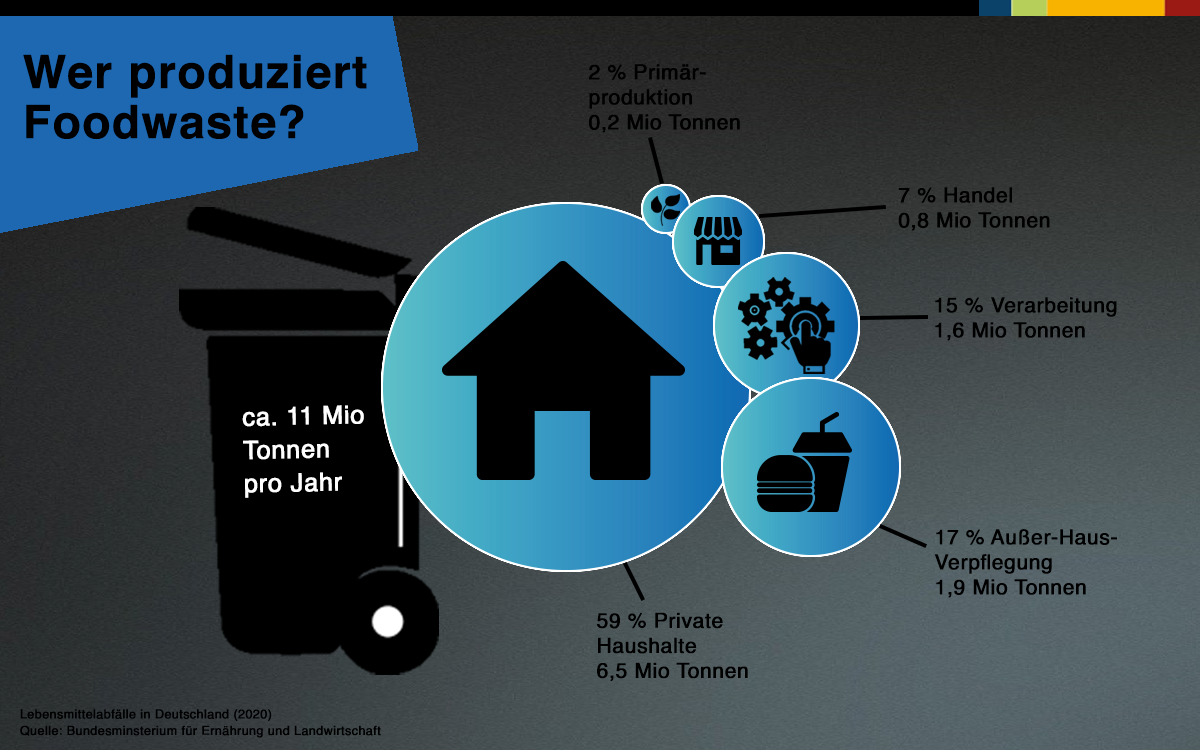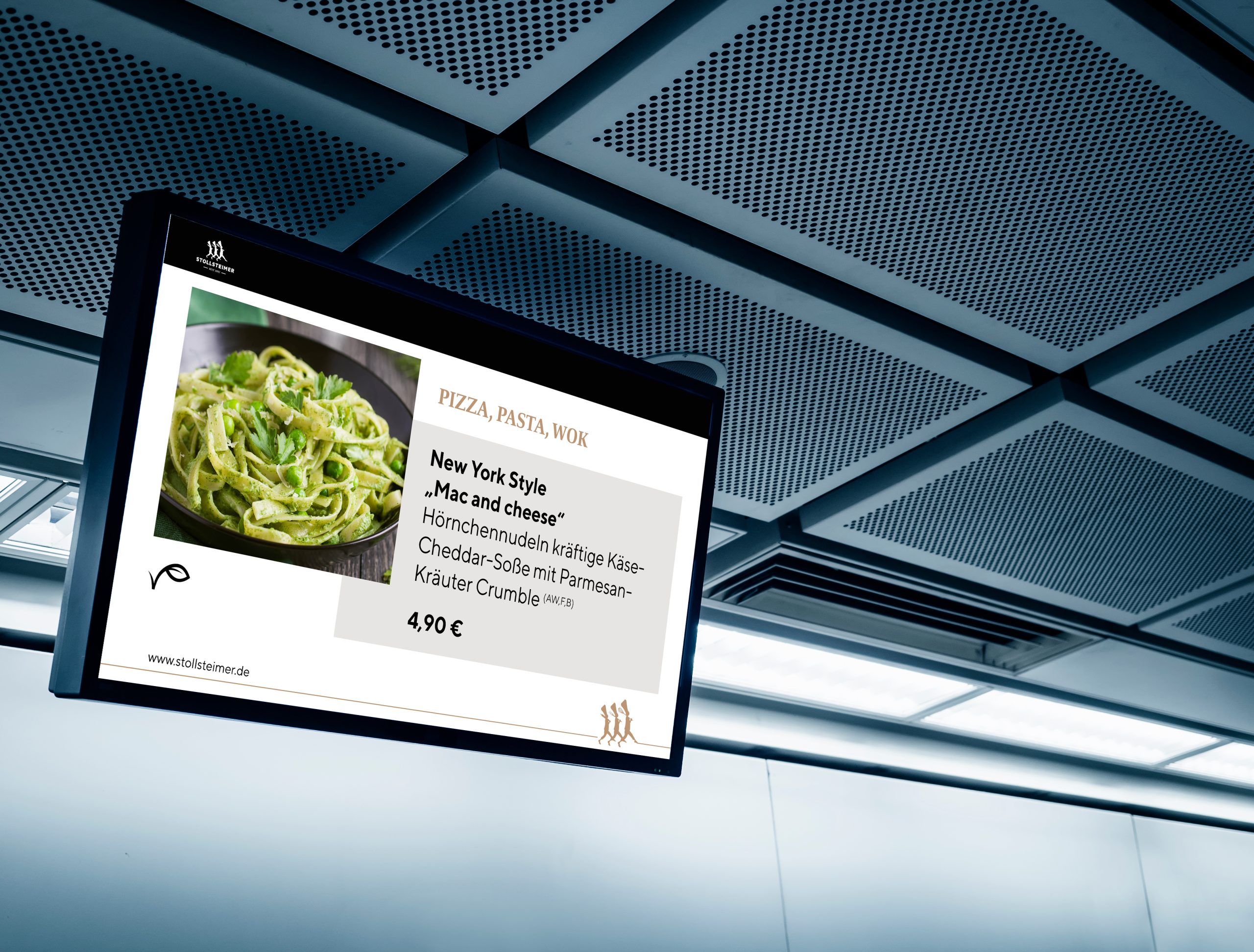#DeutschlandRettetLebensmittel - under this hashtag, the Federal Ministry of Food and Agriculture (BMEL) has launched this year's campaign week "Germany saves food" from September 29 to October 6, 2022.
The reason is clear: too much food ends up in the garbage can: statistically, every consumer throws away around 78 kg a year. "Food waste is a major problem that urgently needs to be tackled, especially in view of the climate crisis - and wherever food is actually wasted," says Federal Minister Cem Özdemir.
Why the action week is important
The total amount of food waste (fresh mass) in 2020 was approximately 11 million tons. In addition to leftover food and unsold food, this includes, for example, non-edible components such as nut and fruit peelings, stalks and leaves, coffee grounds or bones. Waste is generated in all sectors of the supply chain: from primary production and processing, to wholesale and retail, to out-of-home catering and private households - and some of it is avoidable. The day of action aims to raise awareness and initiate a change in behavior.
Promising for the future: research group accompanies projects
The majority of food waste, 59 percent (6.5 million metric tons), is generated in private households - which is also the focus of this year's Action Day. In concrete terms, for example, every household can submit projects to prevent food waste. At the same time, participating households can take part in a research project: They measure their private food waste and continuously document what progress there is through participatory actions as part of the action week. Researchers from the Technical University of Berlin accompany the projects and then derive appropriate measures for the future from the collected data and findings.
Even though the focus this year is on private households, the topic is logically also of great importance to restaurateurs: after all, resource-conserving management also means reduced costs.
National strategy to reduce food waste
The importance of the problem is also reflected in the "National Strategy to Reduce Food Waste". Its goal is to halve per capita food waste in Germany at retail and consumer level by 2030 and to reduce food waste generated along the production and supply chain, including post-harvest losses. Above all, the aim is to design the food supply chain in such a way that waste is avoided at every stage or surpluses are prevented in the first place.
An expert report by the BMEL's scientific advisory boards for food, agricultural and forestry policy has shown that a 50 percent reduction in food waste in private households would save six million metric tons of CO2 equivalents in greenhouse gas emissions in Germany - avoiding food waste thus makes a significant contribution to resource and climate protection.
Dialog forums for the individual sectors have been set up to implement the National Strategy and work on the targets set.
Who produces foodwaste?

Great potential in the out-of-home market
At 30 - 50 percent, the out-of-home market offers particularly high savings potential in the area of food waste. This is at least the result of more than 720 waste measurements and analyses carried out since 2014 by United against Waste e.V. in cooperation with various companies.
The Dialogue Forum on Out-of-Home Catering, coordinated by WWF Germany, has adopted a target agreement after three years of work. The signatories to the agreement (including company canteens, hotels, hospitals and schools) agreed to reduce their food waste by 30 percent by 2025 and by 50 percent by 2030.
How restaurateurs can minimize food waste
According to a guest survey by npdgroup, almost half of respondents prefer restaurants that make an effort to be sustainable. Restaurateurs have a variety of options to meet this need, from reusable packaging systems to minimizing space and resources to touting health and sustainability factors.
To avoid food waste in the company restaurant, options include:
- Adjust portion sizes
- Enable pre-orders to optimize purchases and avoid overproduction
- Regular inventory and pay attention to the correct storage
- Donate food to the needy (e.g. The Tafel)
Food waste can also be avoided in the private sector: An expired best-before date does not mean that the food has to be disposed of. Here it is worth relying on your senses: If the food smells funny, shows discoloration or tastes different than usual, it should be disposed of. If not, bon appétit.
Conclusion: Food waste affects us all
Reducing food waste does not require expensive technologies or complex processes. The responsibility for this lies with all of us and often small changes in behavior are enough - be it in purchasing, storage or "disregarding" the best before date. The campaign week "Germany saves food" aims to raise awareness for precisely this and at the same time provides exciting research results. By avoiding food waste, everyone can make an important contribution to climate protection without any great effort.


